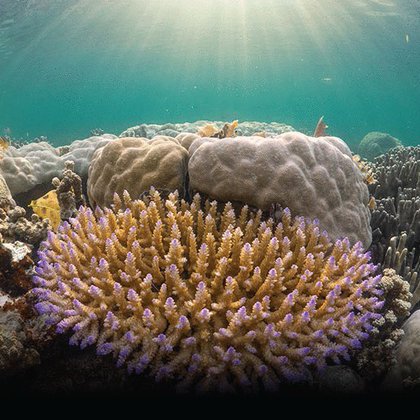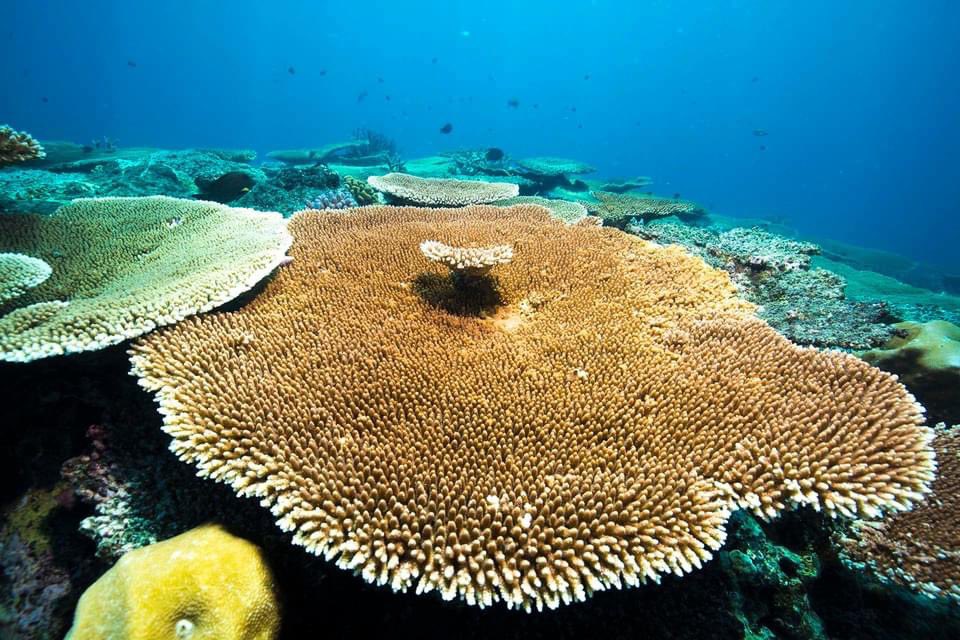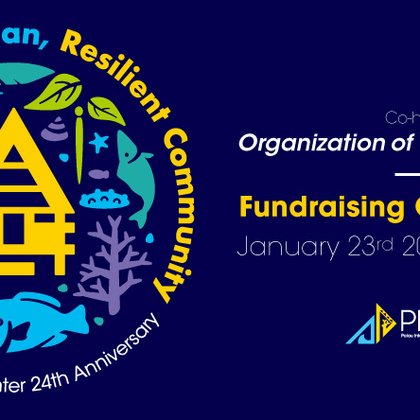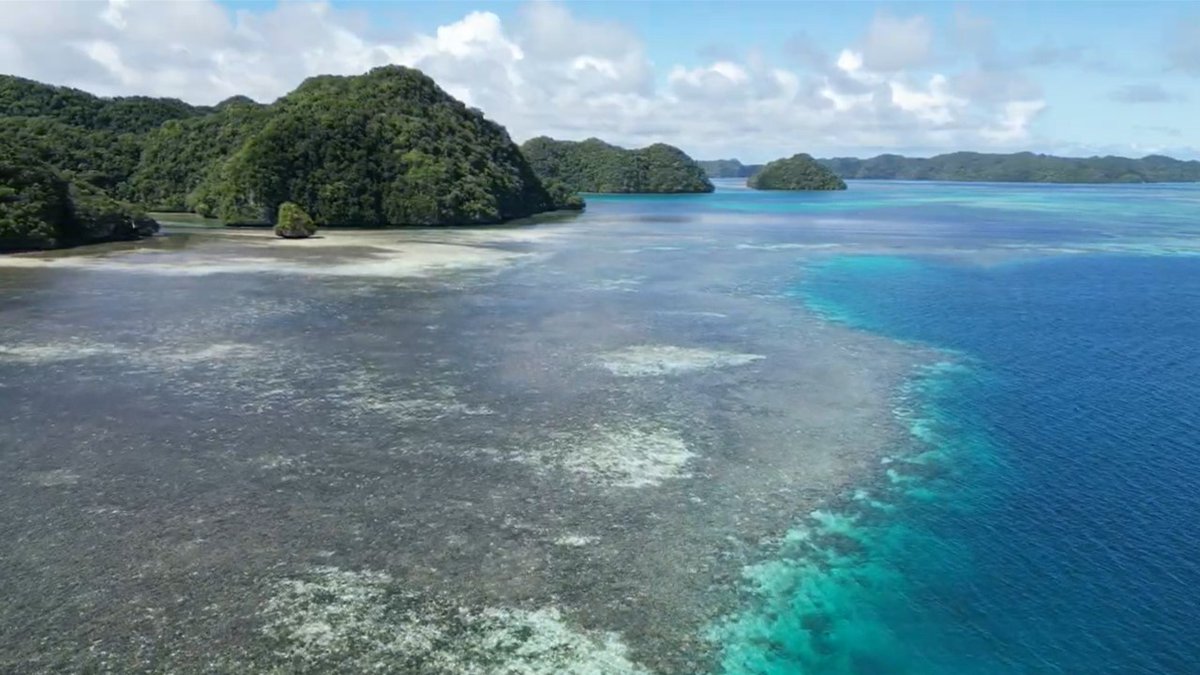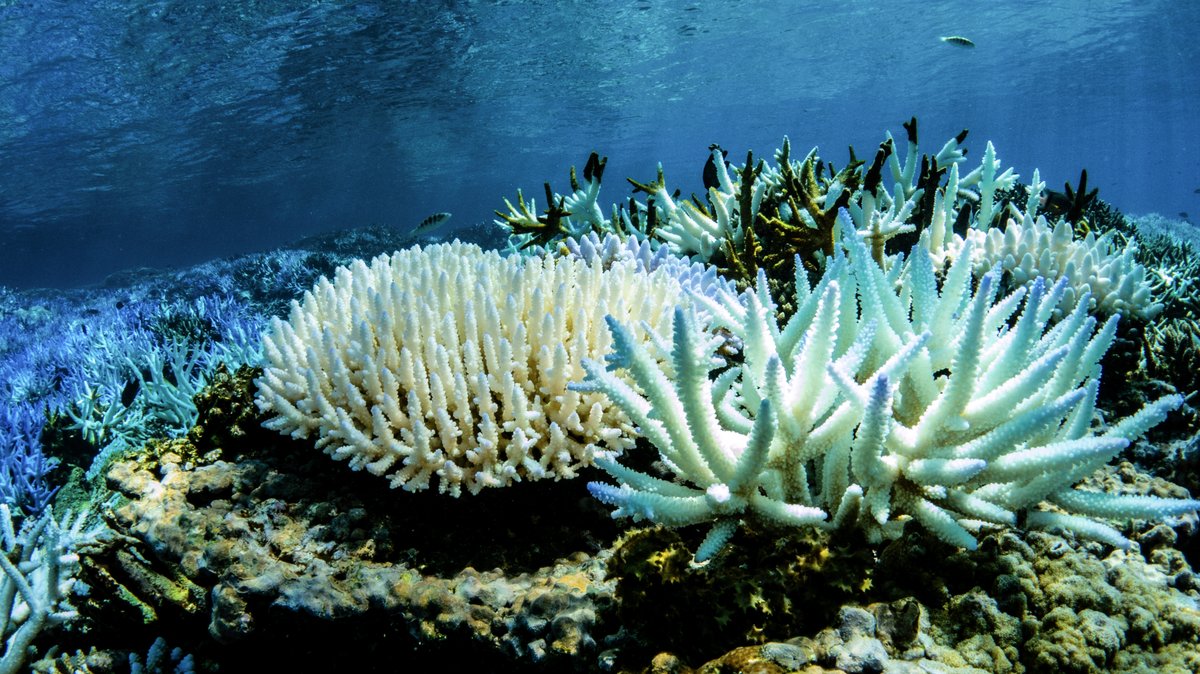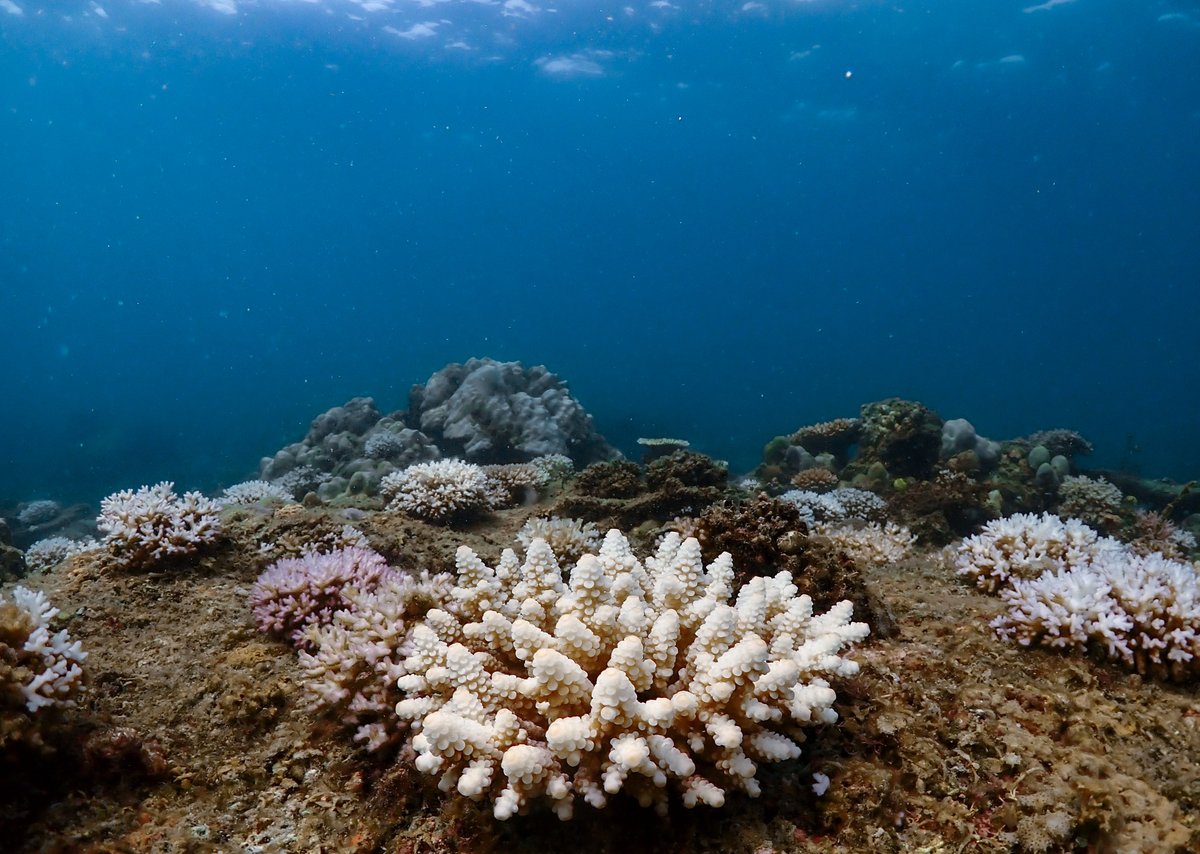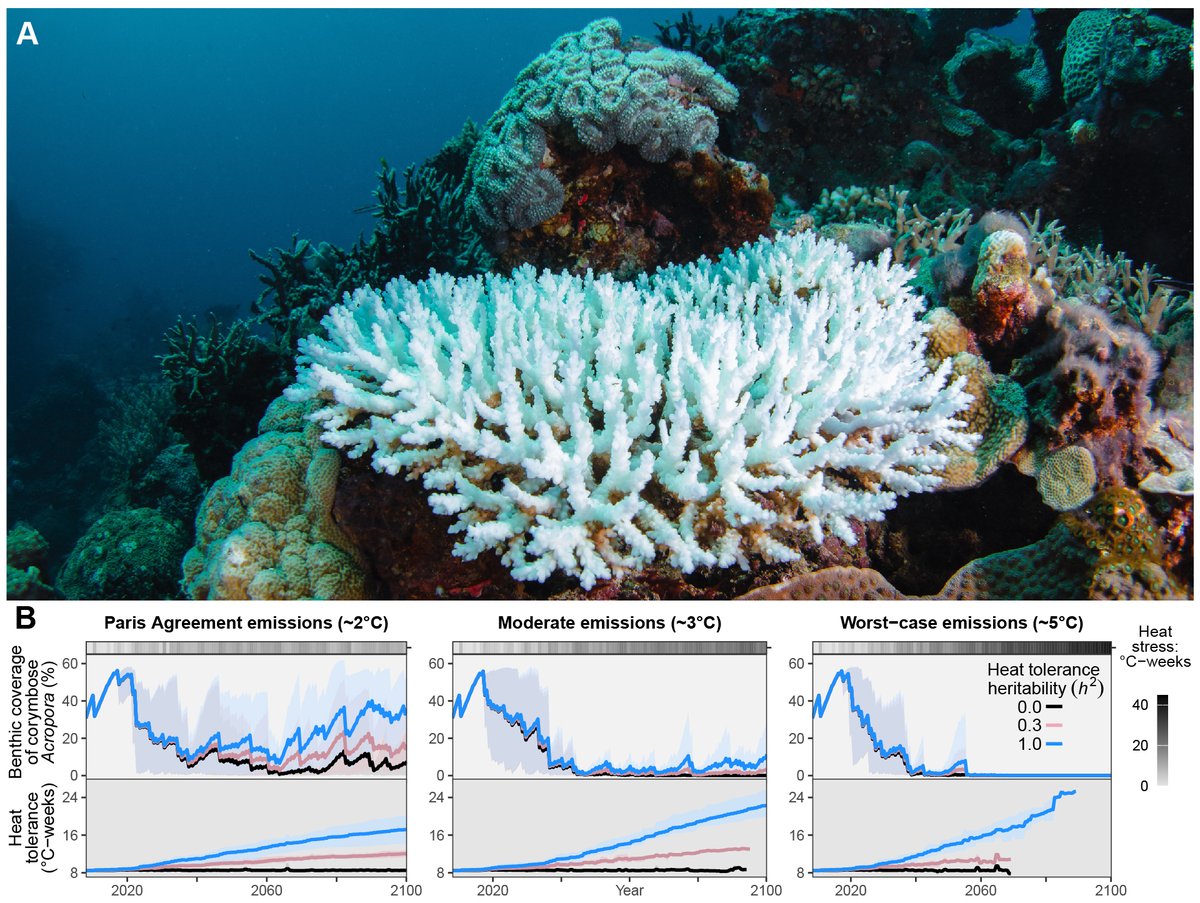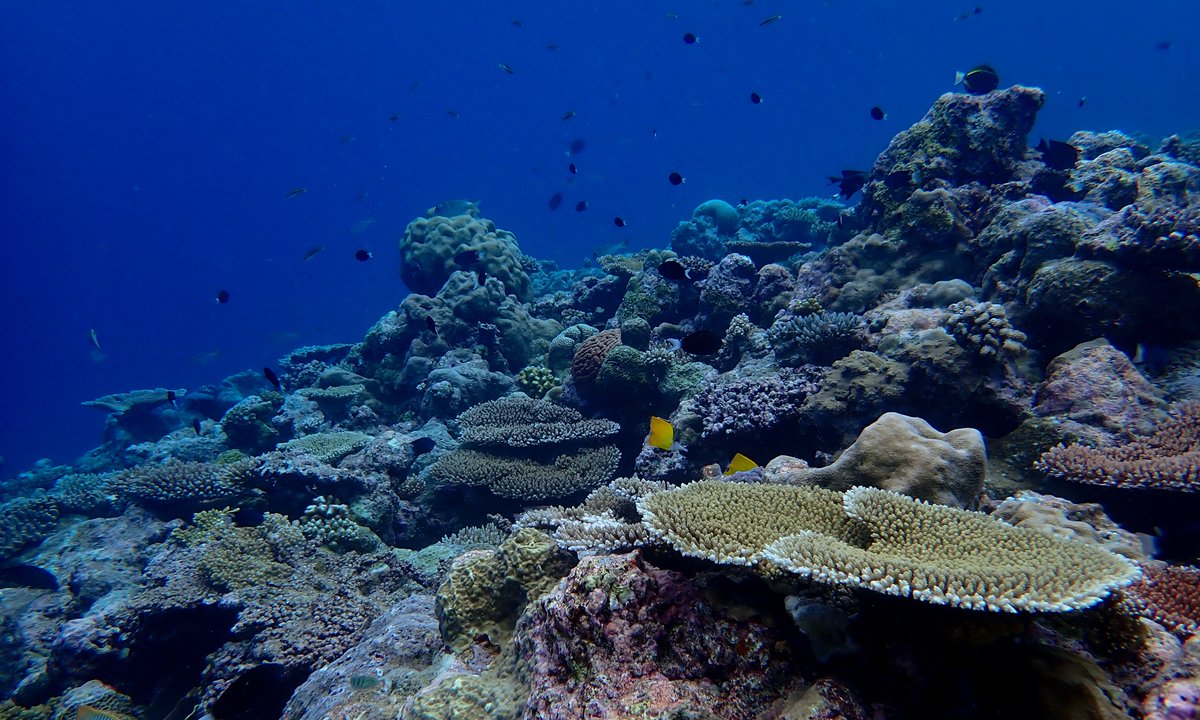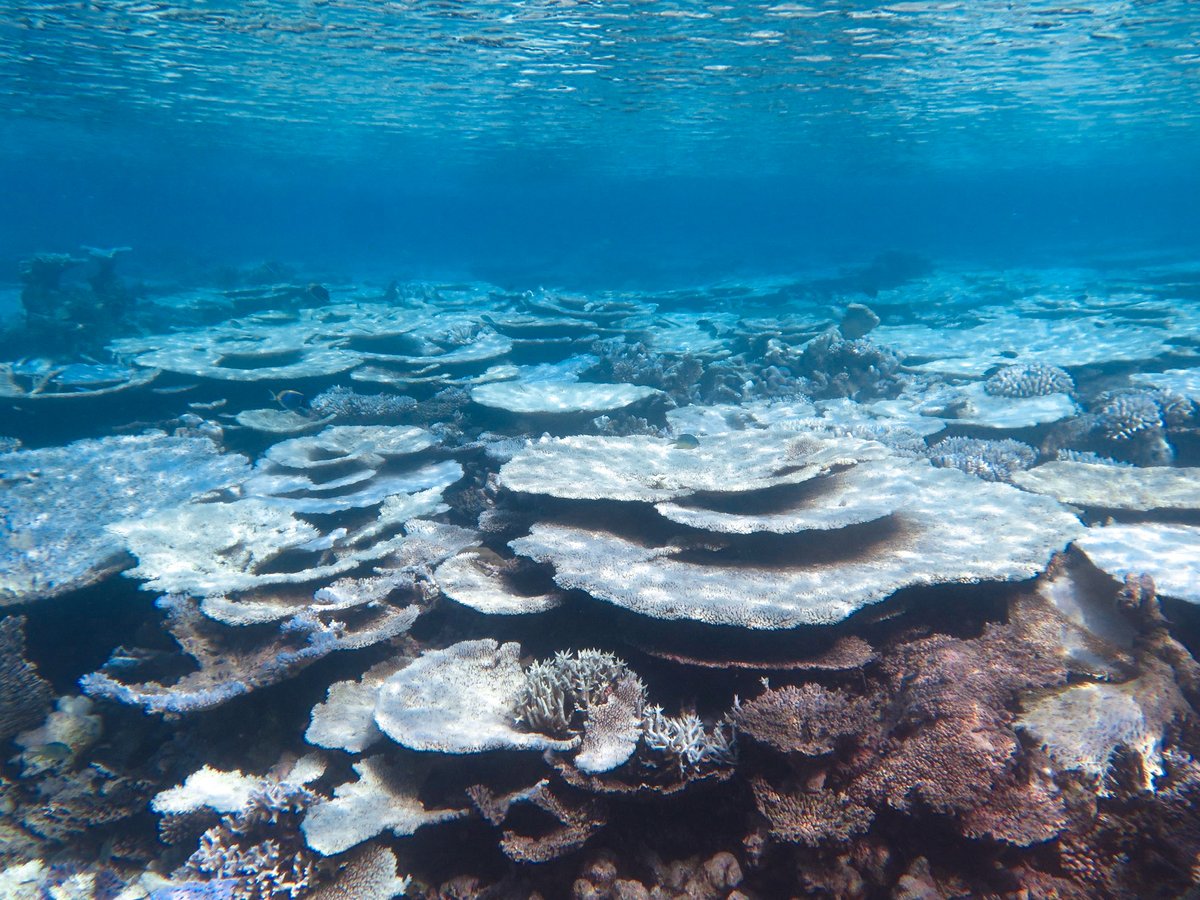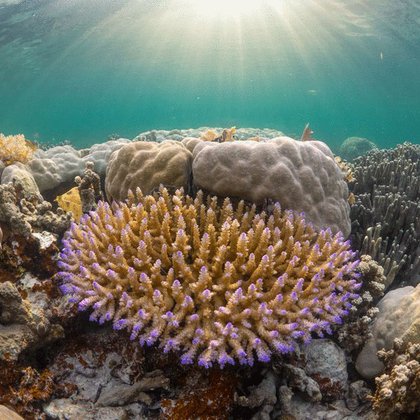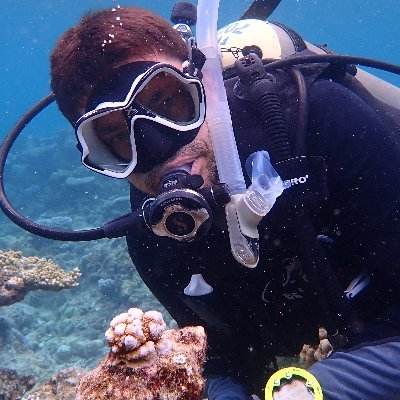
James Guest
@jr_guest
Followers
3K
Following
4K
Media
107
Statuses
1K
Reader in Coral Reef Ecology at Newcastle University. PI of @Coralassist_Lab. Favorite activity: swimming over a healthy coral reef!
Newcastle Upon Tyne, England
Joined September 2014
Looking for a job or an opportunity in coral conservation? We’ve got you covered! All over the world, research teams are working tirelessly to save corals—and many are searching for passionate individuals to join their mission. If you’re looking for a career in coral
0
8
16
Watch our new video showcasing the collaborative project between @PICRCPalau and @Coralassist_Lab on climate-smart management of Palau's reefs! https://t.co/LWYHoYRPyn
0
7
15
Delighted to see our paper out in @ScienceMagazine today. And congrats for the amazing picture @jr_guest! https://t.co/f3rzkgbObi
@SciencesNCL
@UQscience
science.org
Highlights from the Science family of journals
1
5
14
Allee effects require corals to lie within a few metres of their neighbours to achieve successful fertilisation. https://t.co/YXsOS7yuTE open access @GerardRicardo01 @ChrisDorop @PICRCPalau
0
26
62
We'll celebrate our 24th anniversary on January 23rd, 2025! The theme for our upcoming Anniversary Dinner, ‘Resilient Ocean, Resilient Community’, highlights the interconnectedness between healthy ocean ecosystems and the wellbeing of Palauan people. https://t.co/jXkRwBU5yy
picrc.org
The Palau International Coral Reef Center (PICRC) will celebrate its 24th anniversary on January 23rd, 2025. The theme for the upcoming Anniversary Fundraising Gala Dinner, ‘Resilient Ocean, Resili...
0
2
1
The critical role of coral reef restoration in a changing world | Nature Climate Change
nature.com
Nature Climate Change - Recent discussions have raised concerns about the long-term effectiveness of coral reef restoration efforts, questioning whether current interventions can effectively...
0
3
4
Thanks to all the other supportive groups & institutions helping fuel ideas in our field: @PICRCPalau @aims_gov_au @SciencesNCL @ecology_ncl @Coralassist_Lab @UQscience @UBCoceans @SCU_Australia (12/12)
2
2
8
Thanks for supporting this work: @UKRI_News @NERCscience @ONEPlanetDTP @ERC_Research @MitacsCanada @RGS_IBG @ICRSCoralReefs @IDEAWILD Coauthors: YM Bozec, J Bythell, @simondonner @HK_East AJ Edwards @golbuu @MarineGouezo @jr_guest @adriana_humanes C Riginos & @petemumby (11/12)
1
2
6
Now we must combine this knowledge to support natural adaptation and enhance the heat tolerance of key coral species at local scales for high priority reefs. (10/12)
1
2
4
But there is also scope to bolster natural adaptation rates, e.g., via “assisted evolution”. We now know that selective breeding corals to improve adult tolerance to lethal heatwaves is feasible. https://t.co/euG5BfKR7V (9/12)
1
3
10
Our work is a call to action. If we want healthy reefs we must reduce emissions & manage reefs strategically to promote adaptation potential. It's also a call away from complacency. Adaptation may well help maintain coral populations if we can deliver on decarbonisation. (8/12)
1
1
3
If we abandon the cause for climate action & global temperatures rise by ~5°C, Acropora corals in our model disappear. This holds true even for a an upper limit of adaptive potential, where heat tolerance is 100% genetically determined & inherited perfectly. (7/12)
1
1
3
Given current climate policies (which are lagging behind Paris commitments), we're on track for a ~3°C warmer world Including adaptation in our model can make the difference between Acropora corals being lost vs. persisting, albeit with a potential loss of reef function (6/12)
1
1
3
No matter our actions on reducing emissions, Acroporacorals are expected to decline over the coming decades. But if we can achieve Paris Agreement commitments and limit warming to 2°C, then natural selection could allow Acropora populations to thrive beyond 2050. (5/12)
1
2
4
We find that natural selection could be able to offset some of the projected degradation of reefs. But this will depend on our collective action toward decarbonisation to limit and reverse global warming. (4/12)
1
2
4
Marine heatwaves and resulting mass coral bleaching & mortality events remain the single biggest threat to coral reefs globally. We set out to test whether coral adaptation via natural selection could occur fast enough to keep pace with ocean warming. (3/12)
1
2
6
Our thoughts at @ConversationUK: https://t.co/2QZ9wCtxvk The full paper in @ScienceMagazine: https://t.co/2rvr5oxcgB Open access accepted version: https://t.co/kb0fbzaPzq (2/12)
science.org
Marine heatwaves are intensifying under climate change, exposing populations of reef-building corals to mass mortality and intense selective pressure. It remains unknown whether adaptation can keep...
2
7
13
📢New Paper Alert📢 on corals and climate change in @ScienceMagazine Adaptation via natural selection could determine whether Acroporacorals persist under expected levels of global warming Hyperlinks & explainer thread below ⬇️ (1/12)
3
29
76
Great fun chatting with @ThePaulTurner and Jan on #TransformingTomorrow! 🌳🪸🐠📈 Really enjoying this collaboration with @lecreefs @LancsUniLEC @PentlandCentre @LancasterManage
https://t.co/agbK3wbkIg
open.spotify.com
Transforming Tomorrow · Episode
It's a #businessandbiodiversity double whammy on #TransformingTomorrow this week. 1st, Dr @TimACLamont of @LancsUniLEC talks to Jan + @ThePaulTurner about how work on #coralreefs led to work on #corporatereporting on #naturerestoration. @LancasterManage
https://t.co/eanWhkMTBB
0
2
7





